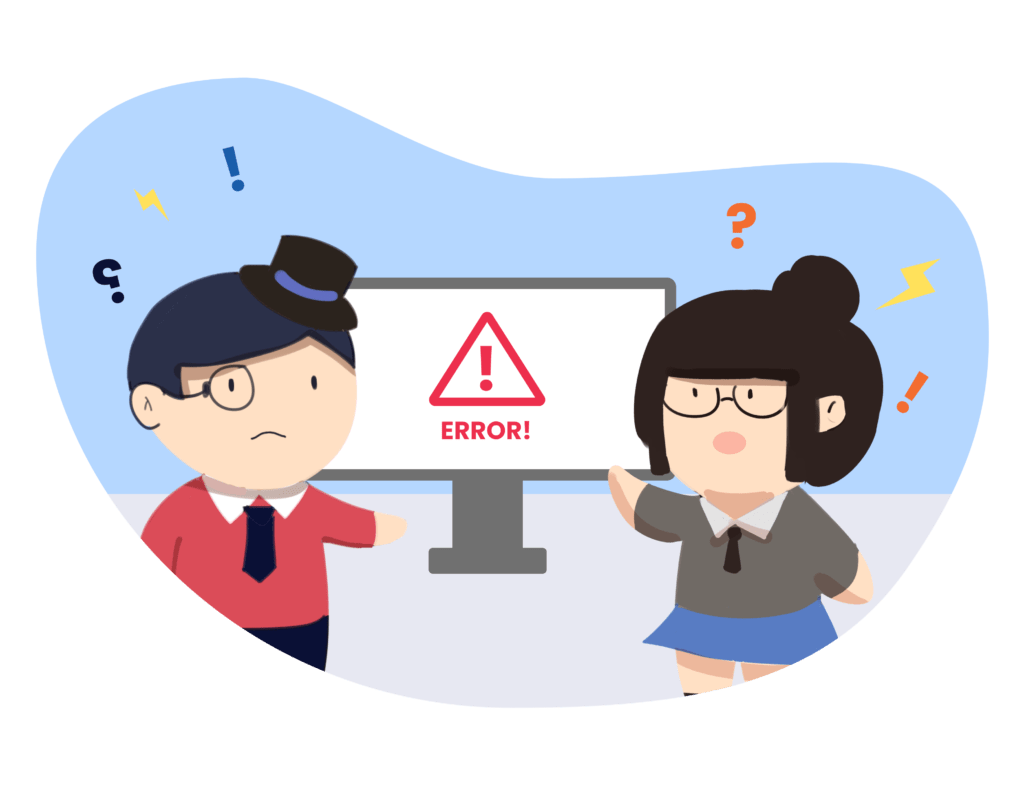Let’s take a look at what leadership is and what qualities make a good leader!
What are Leadership Qualities?
Leaders in any organization need to exhibit certain characteristics in order to be successful. These characteristics are invaluable for any manager, whether they oversee a particular team, a single department, or an entire organization. When compared to technical knowledge or industry experience, leadership abilities are more crucial in almost every occupation because they require soft skills.
10 Leadership Qualities
If you want to lead effectively, you need to master your field and hone your leadership skills. Start with these 10 characteristics of effective leaders.
1. Accountability
The best leaders embrace the results of their teams’ efforts, good or bad. If you want to be an effective leader, you need to make it a point to both encourage and push your team to do better. Also, when you make a mistake or act unfavorably, you must accept responsibility for it. Effective leaders acknowledge that they, like the rest of us, have room to grow and are honest with their subordinates about the areas in which they might use development. Set a positive example for your employees to follow.
2. Adaptability
Leaders with experience know that it’s normal for things like timelines and objectives to shift. Developing the kind of adaptability that lets you change course quickly when necessary is essential if you want to lead effectively. It’s possible that other leadership skills, like resourcefulness and the capacity to think creatively in the face of challenges, will naturally emerge with your growing adaptability. If you want to be more flexible, it helps to train yourself to embrace rather than resist difficulties.
3. Confidence
It is essential for leaders to show confidence if they want to inspire their teams. You should maintain composure and conviction regardless of how difficult the situation becomes. Trust in a leader’s abilities is a hallmark of followership, and leaders with this quality tend to acquire it rapidly. Enhance your confidence by practicing your presentations in advance, anticipating questions, and formulating insightful solutions.
4. Creativity
The most effective leaders rarely imitate the actions of those who came before them. They prefer novel, exciting approaches to problem-solving. As a leader, you should encourage original thinking so that you can try new things and achieve your objectives. Before settling on a single answer, expanding your mental toolkit with alternative options can help you think more creatively.
5. Empathy
Executives, managers, and supervisors all put in extra effort on behalf of their companies. In these situations, it’s important to put yourself in the shoes of those on your team so you may better understand their situation and work together. If you want to get to know your team members better, setting up some casual get-togethers will help you recognize the difficulties they experience and the aspirations they have.
6. Focus
If you can keep your focus, you may be able to complete your tasks despite the interruptions. Focusing on what matters most will help you achieve your most ambitious goals while making efficient use of your time and other available resources. You might try setting times when you won’t have any distractions and times when you can take a break to deal with anything else. Focus more intently on the tasks at hand with this strategy.
7. Positivity
The best leaders inspire their teams to reach their objectives and perform at their highest levels. Positivity in the face of adversity, whether it is overcoming an obstacle or providing constructive criticism, is a characteristic of a good leader. As an alternative to emphasizing the challenging work your team must do to finish a significant project, you may emphasize the rewards that will come from their efforts.
8. Risk-taking
Leaders must be able to assess situations and decide whether to take chances or follow the safe route. Learning to assess the advantages and disadvantages of certain actions is the first step to becoming a risk-taking pro. Make an effort to be fair so that your staff can easily accept and implement your plans. Try drawing a flowchart of the relevant steps to help you evaluate situations and come to decisions with more confidence.
9. Stability
Leaders require a solid sense of stability despite being tasked with driving massive change. Keeping a project, team, or business on schedule requires an approach that is consistent and reliable. Setting up routines and communicating them to your team helps everyone stay motivated and on task as you aim for continuous improvement. For instance, you could have a weekly meeting to inform your staff about future changes.
10. Team-building
In order to succeed, even the most capable leaders require hard-working teams. One of the keys to being a good leader is understanding how to foster an environment that promotes cooperation and teamwork, motivates employees to give their very best, and helps them achieve goals that may initially appear unreachable. Team-building exercises, including icebreakers and group outings, are great for fostering collaboration and opening lines of communication among members of a team.
Methods for Fostering Leadership Qualities

Some of these leadership qualities may come more easily to you, but it’s important to remember that you can always work to improve. In order to grow into a strong leader, try focusing on these five areas.
-
Make training and education a top priority.
Learn as much as you can to develop yourself and your abilities. Create a plan of action that includes both the areas that need work and the specific steps you can take to make those improvements. Taking a class or attending a seminar can help you develop into a better leader by providing you with a framework of lessons and exercises to follow.
-
Adopt a leadership style.
Famous leaders often develop their own unique perspectives when they start trying methods. Learn about the most successful approaches, and then use the one that fits you, your organization, and your objectives the best. Think about adopting a visionary leadership approach that allows you to concentrate on driving forward development through innovation or adopting a coaching approach that emphasizes assisting all members of your team in becoming their best selves.
-
Ask for more responsibilities.
Taking on leadership roles is a great opportunity to hone your abilities and cultivate the qualities that make a good leader. Ask for more responsibility by proposing to lead the next project or presenting at a meeting of higher-ups. If you want to make the most of your new responsibilities, you should put your energy into developing the leadership skills that will help you succeed. Taking the lead in team meetings or managing a project can help you gain confidence and develop leadership abilities.
-
Enhance your communication skills.
The best leaders are those who can communicate clearly, both orally and in writing, and who are also attentive listeners. Master the art of effective communication by focusing on presenting the clearest message possible while articulating your goals and thoughts in both spoken and written form. You also need the ability to take in and use criticism and recommendations in order to solve problems with an impartial, growth-focused mindset. You could join a training program to improve in this area, which is important to your success as a leader.
When you have the opportunity to learn from and work with a respected superior, you will have a competitive edge in developing your own leadership skills. Learn as much as you can from a more experienced coworker by taking part in any mentorship programs your firm may provide. You can find a mentor all on your own by attending conferences and other industry events. It’s a good idea to meet with your mentor once a month to discuss your professional growth and ways to take the lead.
In Conclusion
One of the driving forces behind anyone aspiring to leadership is a desire to make a difference. As such, having leadership qualities is essential. No single leader possesses every one of these traits.
Consistency of effort and confidence in one’s own abilities are the foundations of success. As a result, leaders should keep this in mind and put these skills to use if they want to see long-term success.










